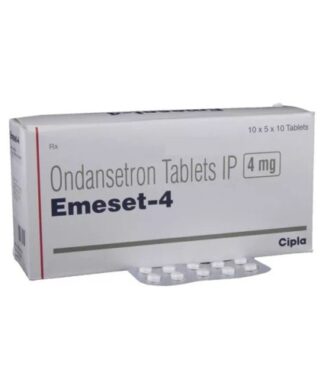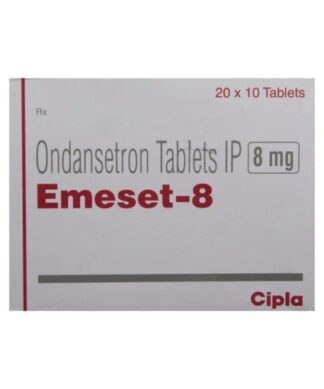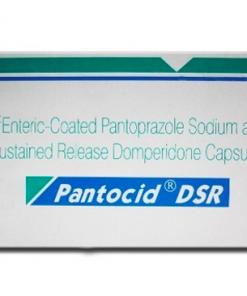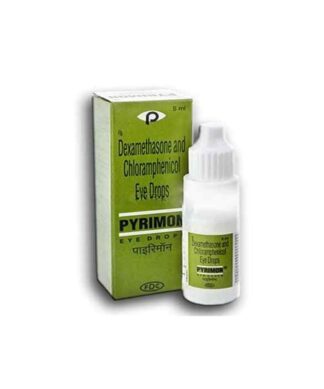Anti Emetic
Antiemetic agents are prescription drugs that help in the relief of nausea and vomiting when they are unwanted side effects of other drugs such as anesthesia and chemotherapy.
The antiemetic drugs serve to relieve the nausea and vomiting that are common side effects among other drugs.
Thereby, the samples may comprise of anesthesia drugs used during surgery or chemotherapy for cancer. Antiemetic drugs are also used for nausea and vomiting caused by
- Motion sickness
- Morning sickness during pregnancy
- Some of the cases of the stomach flu (gastroenteritis) may be very severe.
- Other infections
They function in a way that they block the neurotransmitter receptors responsible for the process of vomiting.
These cells are called as neurotransmitters that are located at the end of the sending cell.
The ways that regulate these bodily functions are, though, very intricate. The type of antiemetic medication will be determined by the cause.
How do Antiemetic medications work?
Antiemetic drugs do work by blocking some signals in your brain, which in turn cause you to feel nauseous.
These two problems are commonly considered as the responses of the stomach. However, it is the brain which produces these unpleasant effects.
Through transmission of specific chemical messengers, either entering or affecting the “vomiting center” in the brain. This phenomenon results in you being sick or vomiting.
Examples of these chemical messengers include
- Histamine
- Dopamine
- Serotonin
- Neurokinins (NKs)
- Acetylcholine
Antiemetic drugs are trying to halt the action of one or more of these chemical signals.
Those chemicals block the chemicals from binding to their receptors (target sites) which are known as receptors. Receptors implicated range from those that are responsible for the cause for nausea.
Types of Antiemetic drugs
Some of the antiemetic medicines are administered by the mouth. There are other ones that can be injected or in the form of patches that can be stuck on your body to avoid swallowing them. The type of antiemetic drug you should take depends on what is causing your symptoms:
Antiemetics for motion sickness
Antihistamines, over-the-counter (OTC) medications, that combat nausea and vomiting due to motion sickness are also accessible. They work by keeping your inner ear from fully sensing motion and include:
- Dimenhydrinate (Dramamine, Gravol)
- Meclizine (Dramamine Less Drowsy, Bonine).
Antiemetics for stomach flu
The virus or bacteria that causes the stomach flu, aka gastroenteritis, is the reason. Not only over-the-counter (OTC) drug bismuth sub salicylate (Pepto-Bismol), but also got the ability to cover the lining of your stomach. For your emergency use, you can also try OTC glucose, fructose, or phosphoric acid (Emetrol).
Antiemetics for chemotherapy
The feeling of nausea and vomiting is one of the possible side effects of chemotherapy. Antiemetic drugs are used before and after chemotherapy in order to ward off any symptoms of nausea and vomiting.
Some prescription treatments include:
serotonin 5-HT3 receptor antagonists: one of them is dolasetron (Anzemet), another is granisetron (Kytril, Sancuso), the third is ondansetron (Zofran, Zuplenz), and the last, but not the least is palonosetron (Aloxi)
dopamine antagonists: prochlorperazine (Compazine), domperidone (Motilium, is not available in the US ), olanzapine (Zyprexa)
NK1 receptor antagonists: dosting yapitant (Emend) or rolapitant (Varubi).
corticosteroids: dexamethasone (DexPak)
cannabinoids: medical marijuana, dronabinol (Marinol)
Antiemetics for surgery
Nausea and vomiting after the operation (postoperative nausea and vomiting) can be triggered by anesthetic chemicals used during the procedure. Prescription drugs used for treating PONV include:
serotonin 5-HT3 receptor antagonists: dolasetron, granisetron, ondansetron
dopamine antagonists: metoclopramide (Reglan), droperidol (Inapsine), and domperidone.
corticosteroids: dexamethasone
Antiemetics for morning sickness
Nausea, usually in the morning, is one of the most frequent pregnancy signs. Though antiemetic drugs are rarely recommended unless it is severe, they don’t cause strong side effects.
HG is a pregnancy condition which brings on very pronounced nausea and vomiting. If you have this condition, your doctor may prescribe:
- antihistamines, such as dimenhydrinate
- vitamin B-6 (pyridoxine)
- dopamine blockers, for instance prochlorperazine, promethazine (Pentazine, Phenergan) and other agents.
- metoclopramide as a last resort when others fail
Natural antiemetics
There are some natural ways for people who like drugs-free treatments.
Ginger, a popular home remedy for nausea and digestion issues, is used in this recipe. The report of the review from 2015, which is an example, is a confirmation of its effectiveness; however, the authors of this review point out the necessity of more research.
The National Center for Complementary and Integrative HealthTrusted Source suggest that ginger may be helpful for morning sickness and, if used alongside a medication, to the nausea and vomiting from cancer treatments.
There is not enough data to say if motion sickness nausea or the anesthesia effects can be relieved by it, in any case.
While it seems that peppermint, lavender, and lemon essential oils can be useful in tackling the symptoms of nausea.






